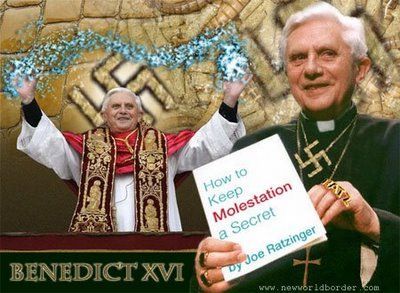God on Trial – Day 15
The Empty Ledger of Christian Justice

Introduction: The Ledger That Never Balances
Christianity claims to hold the key to justice: evil will be punished, the righteous rewarded, and all suffering will make sense “in the end.” But like a bad accountant, it endlessly defers payment. The wicked die comfortably in their beds while children starve, wars rage, and tyrants flourish. The promise? That a cosmic audit awaits after death.
Yet this is not justice; it is a celestial IOU that never arrives in the here and now. And unlike an earthly debt that might at least accrue interest, this one is paid only in faith and imagination. The believer is asked to keep the account open indefinitely, never questioning the silence of a God who refuses to settle the balance sheet of human suffering.
The Problem of Deferred Justice
Every generation has been told, “Your suffering will be redeemed in heaven.” But this promise has never prevented those who wield the cross from also wielding the sword. Popes blessed crusades that slaughtered thousands in the name of Christ. Priests shielded abusers while preaching chastity from the pulpit. Rulers cloaked conquest and enslavement in divine sanction.
The pattern is relentless: injustice in this world is tolerated on the grounds that it will be avenged in the next. The faithful are told to endure patiently, for their tormentors will face God one day. Yet history testifies otherwise. Kings who bled their people dry were buried with pomp. Corporations that exploited child labor displayed crosses in their boardrooms. Dictators who invoked God’s name in speeches died in their palaces, unpunished. The ledger is left perpetually open, but the accounts of the powerful are rarely called.
The Weaponization of Patience
Perhaps Christianity’s most insidious mechanism is its sanctification of waiting. It rebrands resignation as a virtue, demanding that the oppressed endure with meekness.
Slaveholders in the Americas pointed to Paul’s admonition, “Slaves, obey your masters,” as divine ratification of bondage. Millions suffered in chains while being told that freedom would come only in heaven. During the Irish famine, while peasants starved in the fields, the Catholic hierarchy hoarded wealth, offering the poor not food but prayers.
Even the seemingly benign teaching of “turn the other cheek” becomes dangerous in this light. It is less a call to peace than a mechanism of control. By elevating passivity, the Church ensures that revolt is branded as sin. Entire populations were pacified under the illusion that justice delayed is justice sanctified. The result? Systems of abuse perpetuated for centuries without serious challenge, because faith insisted that divine retribution would eventually set things right.
Heaven as a Distraction from Earth
The ledger of injustice is always projected upward. “You’ll get your reward later,” believers are told. But what of those who suffer beyond endurance in this life? What of the raped child, the massacred village, the mother who dies begging for bread?
Christianity cannot balance these accounts, because it outsources justice to an invisible courtroom beyond the grave. And that deferral has consequences. The Holocaust unfolded under the gaze of a silent Vatican, whose cautious diplomacy was rationalized as submission to God’s mysterious plan. The genocide of Indigenous peoples was baptized as evangelism, their extermination justified by the claim that their souls were being “saved.” In both cases, heaven was the excuse for hell on earth.
This focus on a celestial balance sheet numbs believers to real suffering. If all is redeemed later, then nothing must be confronted now. Evil can be excused, ignored, or tolerated, so long as it is folded into the fantasy of a final audit.
The Fraud of Cosmic Accounting
Imagine an earthly judge who tells a grieving family: “Yes, your daughter’s murderer will be punished — but not in your lifetime. Trust me, it will happen after you all die.” Would anyone call this justice? Of course not. Yet Christianity asks us to swallow precisely this absurdity, and on a cosmic scale.
This is not morality but fraud — a spiritual Ponzi scheme, an uncollectible debt recorded in ledgers no one has ever seen. The philosopher Dostoevsky, through his character Ivan Karamazov, posed the devastating truth: no paradise can justify the tears of a single tortured child. The calculation itself is obscene. To suggest that eternal bliss washes away finite suffering is not compassion but cruelty disguised as comfort.
By cheapening suffering, this accounting system corrupts morality. Instead of demanding justice in the here and now, it teaches people to tolerate atrocity, comforted by the illusion that someone else — some celestial accountant — will eventually settle the score.
Conclusion: Tear Up the Ledger
Justice delayed is justice denied. A God who requires centuries of atrocity before balancing the books is no God worth defending. If morality has meaning, it must confront evil here, in this world, where victims bleed and tyrants thrive. To accept Christianity’s accounting system is to accept that no atrocity is too great to be excused, provided one believes a heavenly audit is coming.
But the ledger is empty. The books will never balance. Humanity’s only path to justice is to stop waiting for God to act and take responsibility ourselves. Real morality must live in the present, not in deferred fantasies.
Why This Matters
Christianity’s promise of deferred justice anesthetizes entire societies, teaching people to tolerate evil rather than confront it. By exposing the bankruptcy of this doctrine, we remind ourselves that moral responsibility belongs here and now — not in the clouds. The ledger will not be balanced by divine accountants. It must be balanced by us.
References
Dostoevsky, F. (1880/1990). The Brothers Karamazov. New York: Vintage Classics.
Russell, B. (1927). Why I Am Not a Christian. London: Watts & Co.
Harris, S. (2004). The End of Faith. New York: W.W. Norton.
Dawkins, R. (2006). The God Delusion. New York: Bantam Press.
Hitchens, C. (2007). God Is Not Great: How Religion Poisons Everything. New York: Twelve.
Disclaimer:
The views expressed in this post are opinions of the author for educational and commentary purposes only. They are not statements of fact about any individual or organization, and should not be construed as legal, medical, or financial advice. References to public figures and institutions are based on publicly available sources cited in the article. Any resemblance beyond these references is coincidental.











